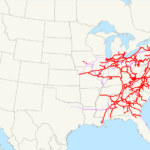Investigating the effects of microgravity on bone mineral density
- Chinese space freighter delivers human bone cells to Tiangong space station
- Experiment aims to investigate bone loss in space
- Cells will be closely monitored and data transmitted back to Earth for analysis
- Research could lead to better ways to tackle bone loss problems on Earth
- China’s space station provides more opportunities for scientific experiments
A Chinese space freighter has successfully delivered human bone cells to the Tiangong space station for an important research experiment. The cells, which grow quickly, were installed just hours before launch to ensure optimal cell activity. The growth of the cells will be closely monitored and data will be transmitted back to Earth for analysis. This research aims to better understand bone loss in space and could potentially lead to improved solutions for bone loss problems on Earth. With the operational phase of the Tiangong space station, China’s science community now has more opportunities to conduct scientific experiments in space.
Public Companies:
Private Companies: undefined, undefined
Key People: Shang Peng (Professor at Northwestern Polytechnical University), Wang Jinfu (Professor with Zhejiang University)
Factuality Level: 9
Justification: The article provides factual information about the launch of the Tianzhou 7 cargo spacecraft and its delivery of human bone cells to the Tiangong space station for research. It includes quotes from professors and scientists involved in the experiment, as well as information about the purpose of the research and its potential applications. The article does not contain any irrelevant or misleading information, sensationalism, redundancy, or opinion masquerading as fact. It is well-researched and accurately reports the news.
Noise Level: 8
Justification: The article provides relevant information about the delivery of human bone cells to the Tiangong space station for research. It explains the purpose of the experiment and how the cells will be monitored and analyzed. The article also mentions the potential benefits of the research for both space exploration and addressing bone loss problems on Earth. However, it lacks scientific rigor and intellectual honesty as it does not provide any evidence or data to support its claims. It also does not provide actionable insights or solutions for the reader.
Financial Relevance: No
Financial Markets Impacted: No
Presence of Extreme Event: No
Nature of Extreme Event: No
Impact Rating of the Extreme Event: No
Justification: The article does not pertain to financial topics and does not describe any extreme events.
 www.space.com
www.space.com 





